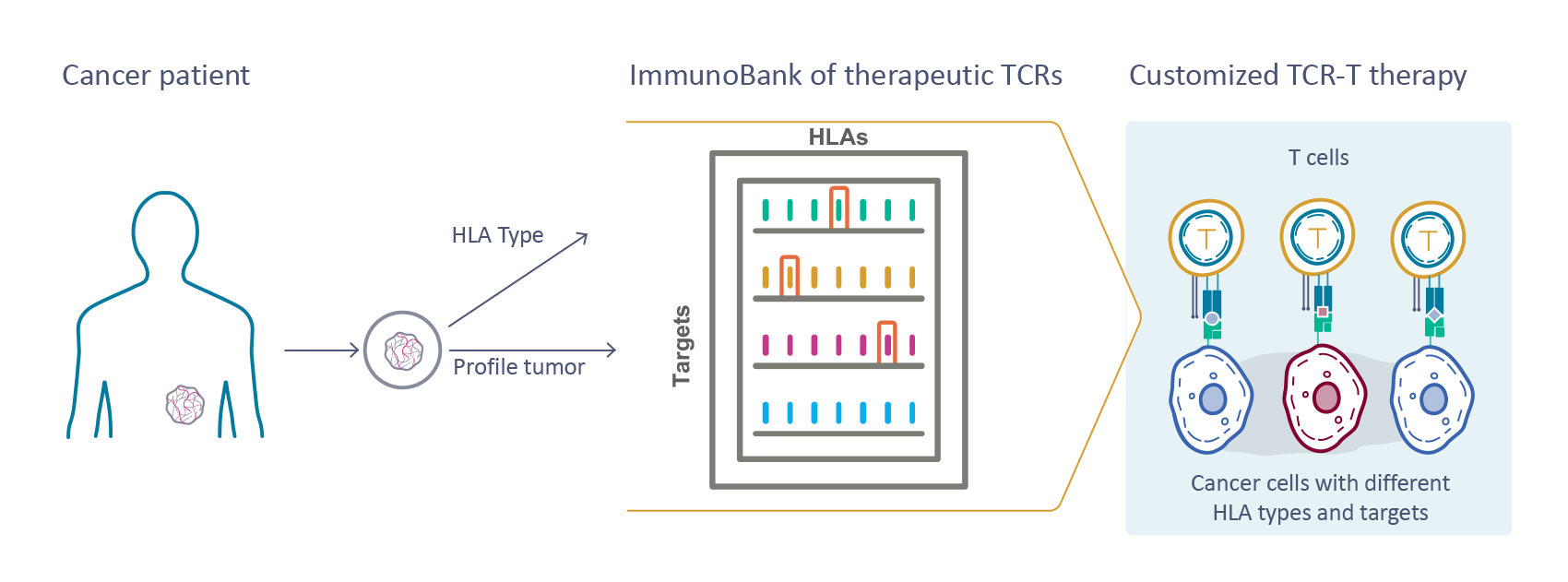Solid Tumors
People with certain types of solid tumors may be able to take part in a clinical trial called TSCAN-002.

In this clinical trial, T cells are first collected from the patient and sent to the laboratory at TScan. Scientists in the laboratory then modify the T cells to help them recognize one or more specific proteins found in the patient’s cancer cells. After about a month, once the T cells are ready, they are frozen and sent back to the hospital so that they can be given to the patient.
Once the T cells are ready, patients will first be given two medicines called cyclophosphamide and fludarabine, to help prepare their bodies for the T cells. This will start about one week before the T cell infusion. Some people will have T cells given to them in one infusion and other people will have T cells given in two separate infusions, about 28 days apart. The number of T cells and number of infusions is based on when the patient joins the TSCAN-002 clinical trial. Patients are closely followed by their doctor and treatment team to help us understand how their cancer has responded, and to monitor any potential side effects caused by the medicines and T cell infusion. Patients will be followed as a part of this study for two years after their last T cell infusion.
Not everyone is able to have one of these T cell medicines made for them. To see who may potentially be eligible for this study, TScan needs to test a bit of the patient’s tumor, to see if it has one of the target proteins. Additionally, T cells can only recognize the specific target proteins if they are combined with another type of protein called human leukocyte antigens (HLA). All of us have up to six HLA types and they can be identified by testing the blood, spit, or by rubbing a piece of cotton along the inside of the cheek. TScan will do a test to determine the patient’s HLA types and to be sure that one of the target HLA types is still found in the tumor. All of these things are checked in a separate study called TSCAN-003. If a patient is considering participating in the TSCAN-002 clinical trial, they will first be required to participate on TSCAN-003 to have their tumor, spit, and cells from the inside of their cheek tested for the proteins we can target and individual HLA types. For patients who are considering participation in the TSCAN-002 and TSCAN-003 trials, please talk to your doctor and care team for more details and to ask any additional questions.
Below is an image that outlines the process TScan uses to determine a patient’s eligibility for TCR-T therapy and how each therapy is selected unique to each patient’s needs:

